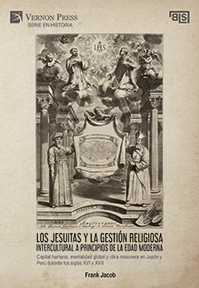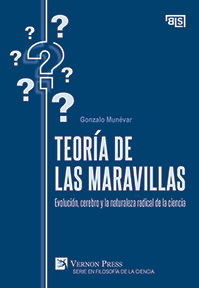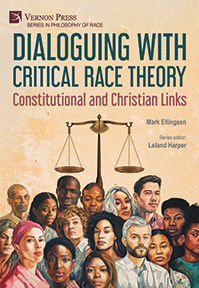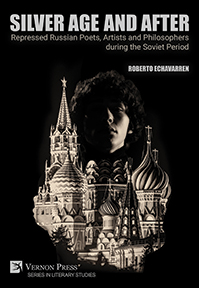Search
Browse
by Publication status
by Subject
Anthropology (26) Art (124) Business and Finance (26) Cognitive Science and Psychology (54) Communication and Journalism (45) Economics (62) Education (66) History (149) Human Geography (22) Interdisciplinary (42) Language and Linguistics (129) Law (16) Music Studies (18) Philosophy (157) Political Science and International Relations (103) Sociology (304) Statistics and Quantitative Methods (20)by Series
Series in Literary Studies (65) Series in Philosophy (59) Series in Education (51) Series in Sociology (42) Series in Politics (32) Series in World History (32) Bridging Languages and Scholarship (31) Series in Language and Linguistics (25) Cognitive Science and Psychology (20) Series in American History (20) Series in Philosophy of Religion (20) Series in Art (19) Critical Perspectives on Social Science (16) Series in Cinema and Culture (16) Curating and Interpreting Culture (15) Series in Critical Media Studies (14) Series on the History of Art (14) Series in Anthropology (13) Series in Business and Finance (13) Economics (13) Series in Music (12) Series in Communication (9) Series in Performing Arts (9) Philosophy of Personalism (8) Series in Law (8) Series in Economic Methodology (7) Series on Climate Change and Society (7) Women's Studies (7) Classics in Economics (6) Series in Economic Development (6) Philosophy of Forgiveness (5) Series in Built Environment (5) Series in Economic History (5) Series in Philosophy of Science (4) Series in Social Equality and Justice (4) Series on the History of Science (4) Serie En Estudios Literarios (3) Serie en Sociología (3) Series in Contemporary History (3) Series in Creative Writing Studies (3) Series in Design (3) The Interdisciplinary Built Environment (3) Serie en Comunicación y Medios (2) Serie en Historia (2) Series in Heritage Studies (2) Series in Innovation Studies (2) Series in Philosophy of Race (2) Serie en Ciencias Políticas (1) Serie en Entorno Construido (1) Serie en Estudios Culturales (1) Serie en Filosofía (1) Serie en Filosofía de la Ciencia (1) Serie en Música (1) Series in Classical Studies (1) Series in Economics of Technological Change (1) Series in Urban Studies (1)by Language
English Spanishby Author
Browsing with filters

Los jesuitas y la gestión religiosa intercultural a principios de la Edad Moderna
Capital humano, mentalidad global y obra misionera en Japón y Perú durante los siglos XVI y XVII
Frank Jacob, Nord University, Norway
Availability: In stock
234pp. ¦ $77 £61 €71
Este libro analiza el papel del capital humano y la mentalidad global de la exitosa gestión intercultural de la Compañía de Jesús en los contextos geográficos de Japón y Perú durante los siglos XVI y XVII. Evalúa y analiza datos históricos de más de 200 jesuitas según la teoría de gestión moderna. El trabajo es, por tanto, un estudio interdisciplinario relacionado con la historia de las órdenes religiosas, la expansión europea, la gestión transcultural o intercultural, y muestra cómo los misioneros jesuitas en Japón y Perú lograron y estimularon una expansión exitosa de la influencia de su orden en estas regiones del mundo. Si bien analiza un tema histórico, el libro también será de interés para los gerentes de hoy en día, y para todos aquellos interesados en crear una exitosa estrategia para la gestión intercultural.
Ser libre era bueno: Dos narrativas de esclavos del caribe angloparlante
Una traducción
Carmen J. Jiménez, University of Tennessee at Chattanooga
Availability: In stock
288pp. ¦ $83 £67 €78
"Ser libre era bueno: Dos narrativas de esclavos del caribe angloparlante: Una traducción" (Bilingual version English- Spanish) brings to life the stories of Mary Prince and Ashton Warner, two enslaved people from the Caribbean who dictated their narratives to British author Susan Strickland. Prince was the first enslaved woman from the Caribbean to undertake such an endeavor. This bilingual text, with an introduction in Spanish, is not only a valuable resource for researchers and literature students but is also accessible and engaging for other adults, adolescents, and young adults. It offers a unique perspective on the experiences of enslaved people in the Caribbean and their fight for freedom. "Ser libre era bueno: Dos narrativas de esclavos del caribe angloparlante: Una traducción" (Versión bilingüe inglés-español) da vida a las historias de Mary Prince y Ashton Warner, dos esclavos del Caribe que dictaron sus narrativas a la autora británica Susan Strickland. Prince fue la primera mujer esclavizada del Caribe en emprender tal esfuerzo. Este texto bilingüe, con una introducción en español, no sólo es un recurso valioso para investigadores y estudiantes de literatura, sino que también es accesible y atractivo para otros adultos, adolescentes y jóvenes. Ofrece una perspectiva única sobre las experiencias de los pueblos esclavizados en el Caribe y su lucha por la libertad.
Teoría de las maravillas: Evolución, cerebro y la naturaleza radical de la ciencia
Gonzalo Munévar, Lawrence Technological University
Availability: In stock
210pp. [Color] ¦ $73 £53 €60
'Teoría de las Maravillas: Evolución, cerebro y la naturaleza radical de la ciencia' aspira a determinar la mejor manera en la que la ciencia puede satisfacer nuestros sentidos de maravillarnos a través de la exploración del mundo. El empirismo establece que la ciencia tiene éxito porque sigue el método científico: La observación basa su juicio en la Teoría, apoyándola o rechazándola. Se ha dado mucho crédito al inventor de este método, Galileo, pero cuando los filósofos historicistas de la ciencia, como Kuhn y Feyerabend, llaman nuestra atención sobre lo que Galileo investigó y escribió realmente, nos quedamos en shock al descubrir que lo que hizo fue clavar una daga en el corazón del Empirismo. Derogó la distinción entre teoría y observación. Hechos simples, como la caída en vertical de una piedra, descartaron el movimiento terrestre. Y con esto concluir que, si la piedra cae en vertical, sin embargo, tenemos que asumir que la tierra no se mueve. Si se moviera entonces la piedra solo daría la sensación de caer en vertical. Galileo, de esta manera, reemplazó los “hechos” sobre el movimiento de la tierra con “hechos” que incluían este movimiento. Este proceso es típico de las revoluciones científicas. Una buena estrategia para la ciencia es la elaboración de alternos radicales. De esta manera, y sobre su tesis, se reconsidera lo que cuenta como evidencia. A Feyerabend se le llamó irracional por esta sugerencia. Pero, si miramos la practica de la ciencia desde la perspectiva de la evolución y de la neurociencia, esta nos muestra que la sugerencia, de hecho, es bastante racional y que, además, ofrece una explicación sobre el por qué la ciencia funciona mejor como forma radical de conocimiento. También nos conduce a una forma biológica sensitiva de verdad relativa, con borradores preliminares que llevan a interesantes debates con otros investigadores de la filosofía de la ciencia. Este libro será de gran interés para estudiantes universitarios, profesores e investigadores en el ámbito de la historia o de la filosofía de la ciencia, así como a cualquiera con un interés general en la naturaleza de la ciencia.
Dialoguing with Critical Race Theory: Constitutional and Christian Links
Mark Ellingsen, Interdenominational Theological Center
Availability: In stock
112pp. ¦ $54 £43 €50
Critical Race Theory (CRT) is certainly a hot topic. No longer just the legal theory it was originally designed to be, it has become an icon for determining which side you are on concerning racism. Most of the loudest voices, especially in the debate about CRT in our schools, seem not to have actually studied the theory. This is a book to get you into the heart of CRT’s actual analysis and prescriptions. It’s a book to get Americans to stop all the shouting and really find out what CRT teaches. It might also contribute to getting more civility into our public discourse. Ellingsen demonstrates how in fact what Critical Race Theory teaches is in line with our Constitutional system’s realism about political solutions, suspicions of our selfishness, and the majority’s tendency to run roughshod over minorities. He also demonstrates that these commitments are consistent with Christianity’s understanding of original sin and the quest for social justice. Consequently, if critics do not want CRT taught in our schools or to be part of our public discourse, we had better stop teaching the Constitution and Christian values in our schools, to rule these commitments as out of order in our search for common values! Get ready for a stimulating, controversial, well-documented read.
Silver Age and After: Repressed Russian Poets, Artists and Philosophers during the Soviet Period
July 2024 / ISBN: 978-1-64889-020-8Availability: In stock
270pp. ¦ $79 £63 €74
The details of the Jewish Holocaust have become part of our history through the testimony of those who survived the death camps. The details of Lenin’s and Stalin’s reign of terror are far less known because they took place behind a wall of secrecy, and because survivors have been loath to speak about them for fear of retribution. This is an encompassing volume presenting an intense display, as complete as can be, of poets, artists, musicians, and philosophers and intellectual actors implicated in different aspects of Russian life roughly through the period 1900-1960. They were people who had lived under the Soviet regime in times of peace and in times of war, from the Red Terror through the Great Terror. One must bear in mind the political and economic conditions in which those lives developed: the one-party rule placed above both the government and the citizens, the abashment of the division of powers, the suppression of private property and private economic initiative, the political police, and the GULAG. I deal with the poets in several chapters, then theater directors, then composers, then philosophers (these both in the introduction and in the play at the end of the book). Besides the Prologue and Introduction, the reader will find an Index of historical names, plus an extensive Bibliography. The work can be used for reference, for classroom adoption, for researchers/practitioners of Russian Literature, Political Studies, Slavic Studies, and Russian History.






